Leucine has been called the “most important” amino acid because it promotes muscle growth and recovery. As an essential amino acid (EAA), leucine must be supplied through diet or supplements. Consuming a balanced ratio of EAA stimulates protein synthesis—adequate leucine intake maximizes this effect. Here are the science based best practices for integrating leucine into your sports performance plan.
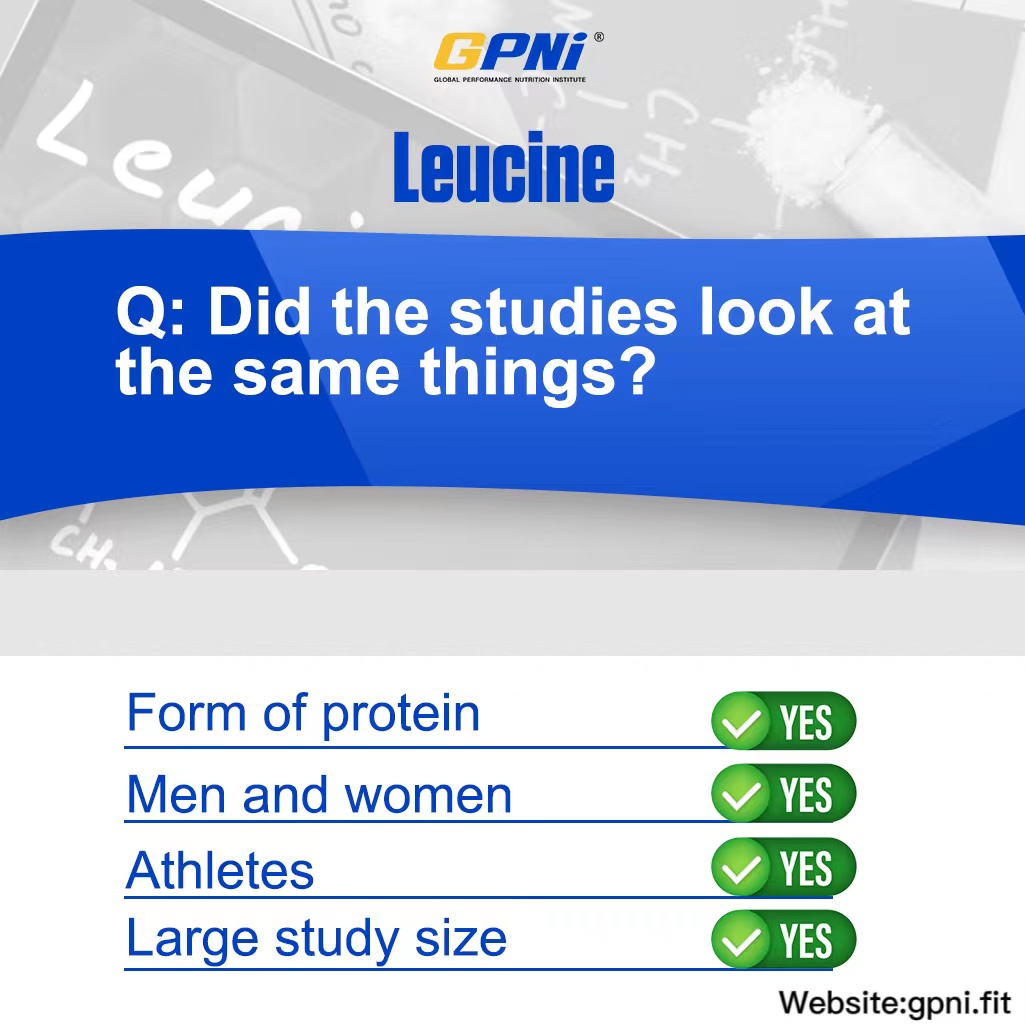
Optimize Muscle Protein Synthesis
The body uses amino acids to build muscle. This process, called muscle protein synthesis (MPS), is essential to repairing muscle fibers from physical stress caused by exercise, injury, and aging. Leucine is uniquely able to improve sports performance by stimulating MPS. Research has found that leucine signals insulin, ultimately leading to a greater activation of pathways that promote protein synthesis and prevent muscle breakdown [1, 2]. Studies also maintain that higher leucine intake leads to lower body fat [3]. This means that athletes should fuel with sufficient total protein that contains a high leucine content to optimize MPS.
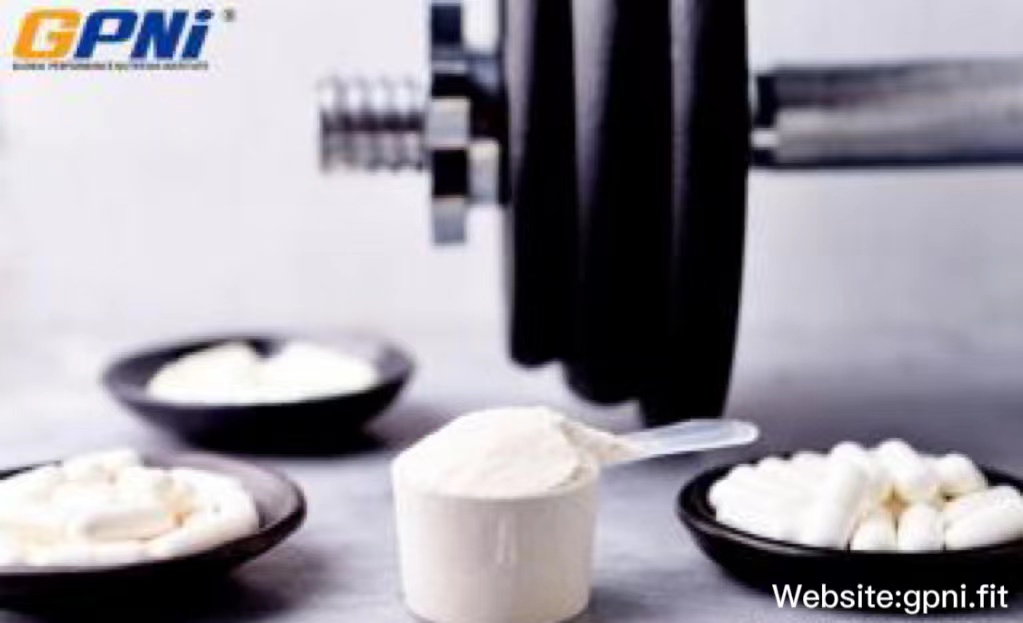
Protein sources differ in leucine content
What should you eat to get enough protein and leucine? It depends on your preferred protein sources. Leucine is an essential amino acid (EAA). EAA are only available from food sources or supplementation—we do not make them in our bodies. Plant-based proteins lack one or more EAA and are less effective at stimulating MPS, while dairy and animal sourced proteins have a higher percentage of EAA [3, 4]. Research on this topic often compares whey (higher leucine percentage) v. plant-based proteins (lower leucine percentage). This may explain conflicting findings. A recent study instead matched leucine content (19 g of whey protein isolate or 26 grams of soy protein isolate daily—both providing approximately 1.8 g of leucine) and found that there were no statistical differences between the improvement in lean body mass and strength found in both groups [5]. There are data that show vegetarian and vegan diets can supply adequate leucine levels to promote MPS.

Click on the link to see the video for more details:https://youtu.be/KiIiMGBv6fs
When assessing a food’s leucine content, be aware of how different foods are compared. If standardized for 30 g of protein, leucine content does not vary much, but, the serving sizes are often not practical. Comparing leucine content from suggested serving sizes shows a larger discrepancy. For instance, 3 oz of beef or chicken is a small portion, especially considering an athlete’s higher protein demand; while 5.4 cups of brown rice is a large serving size that may exceed carbohydrate intake recommendations. In short, animal-based proteins contain more leucine than plant-based foods. To calculate your intake of leucine, plan for a variety of proteins in your personalized serving sizes.
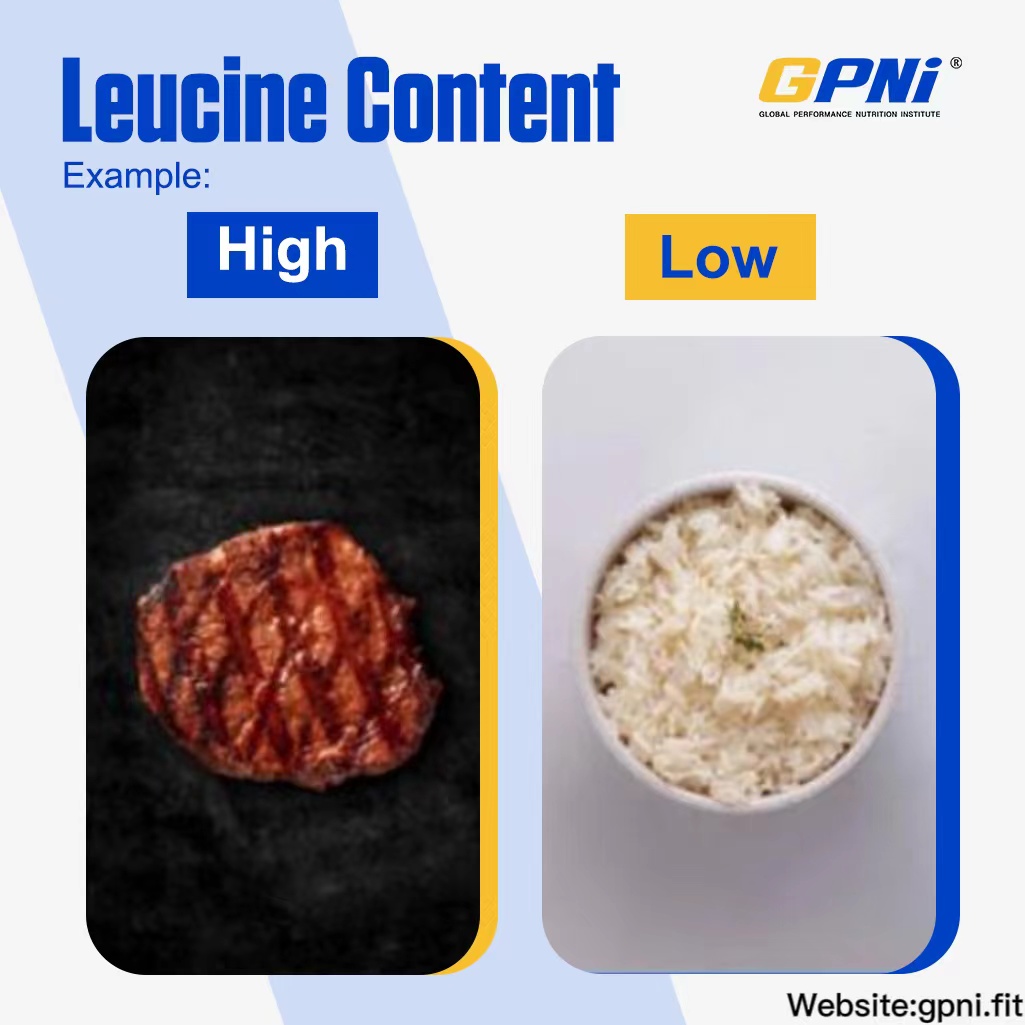
Table 1: Leucine Calculation comparison: by protein amount or serving size
Protein Source | Amount needed for 30 g protein | Leucine per 30 g protein (g) | One Serving Size | Leucine per Serving (g) |
Whey Protein Isolate Powder | As directed | 2.9 | 1 serving (30 g of protein) | 2.9 |
Eggs | 5 large | 2.7 | 5 large (30 g protein) | 2.7 |
Beef, top sirloin | 3.6 oz | 2.4 | 3 oz (24.9 g protein) | 2.0 |
Chicken Breast | 3.4 oz | 2.2 | 3 oz (26.3 g protein) | 2.0 |
Soy Protein Isolate Powder | As directed | 2.3 | 1 serving (26.6 g protein) | 2.0 |
Cheese, Swiss | 5.4 package slices | 3.5 | 3 package slices (17 g protein) | 1.9 |
Black beans, canned | 2.1 cups | 2.5 | 1 cup (14.2 g protein) | 1.2 |
Tofu, firm | 9 oz | 2.4 | 3 oz/85g (9 g protein) | 0.8 |
Brown Rice | 5.4 cups | 2.3 | 1 cup (5.5 g protein) | 0.4 |
Source: chronometer.com
How-To
Consume
- 20-40 g of protein per day (1.4–2.0 g protein/kg body weight/day)
- Diversify protein sources to include all of the EAA
- 1-3 g of leucine per meal
For individuals who choose to exclusively or primarily eat plant-based protein sources, there are ways to ensure EAA balance and high leucine intake. There are limited studies on vegan diets and leucine content, but new research on plant-based proteins shows that MPS is supported with adequate leucine consumption. Because leucine percentages are lower in plant-based sources, larger portions are required. Plant-based proteins do not contain a complete ratio of EAA, and a combination of multiple protein sources is recommended to supply all EAA [3].
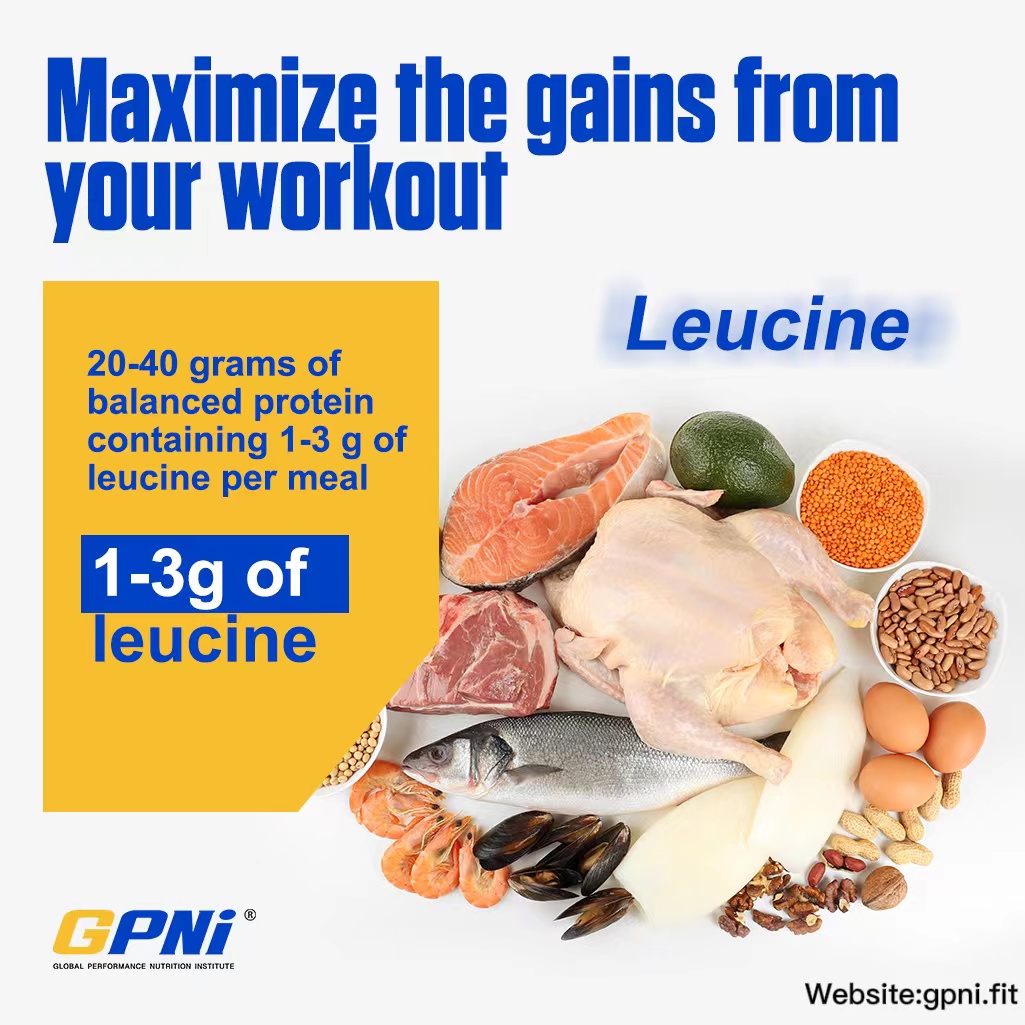
Avoid these common mistakes
It is tempting to see the data and focus only on high leucine doses, but the greatest increases in MPS occur with diverse and balanced EAA consumption. There is a toxic level of leucine that should be avoided: 500 mg/kg/d (35 g/d for a 154 lb. person). Studies suggest leucine best promotes MPS in trained, not non-athletic, populations [3]. Individuals with diabetes should discuss BCAA intake with their medical provider due to the effect on insulin levels [2].
Fun Facts
Leucine is both an essential amino acid and a branched chain amino acid.
HMB comes from leucine. You can learn more from GPNi here https://gpni.fit/are-you-ready-to-add-hmb-to-your-training-protocol/
There are two major forms of leucine. L isomer is the most common, and the form typically found our foods [6].
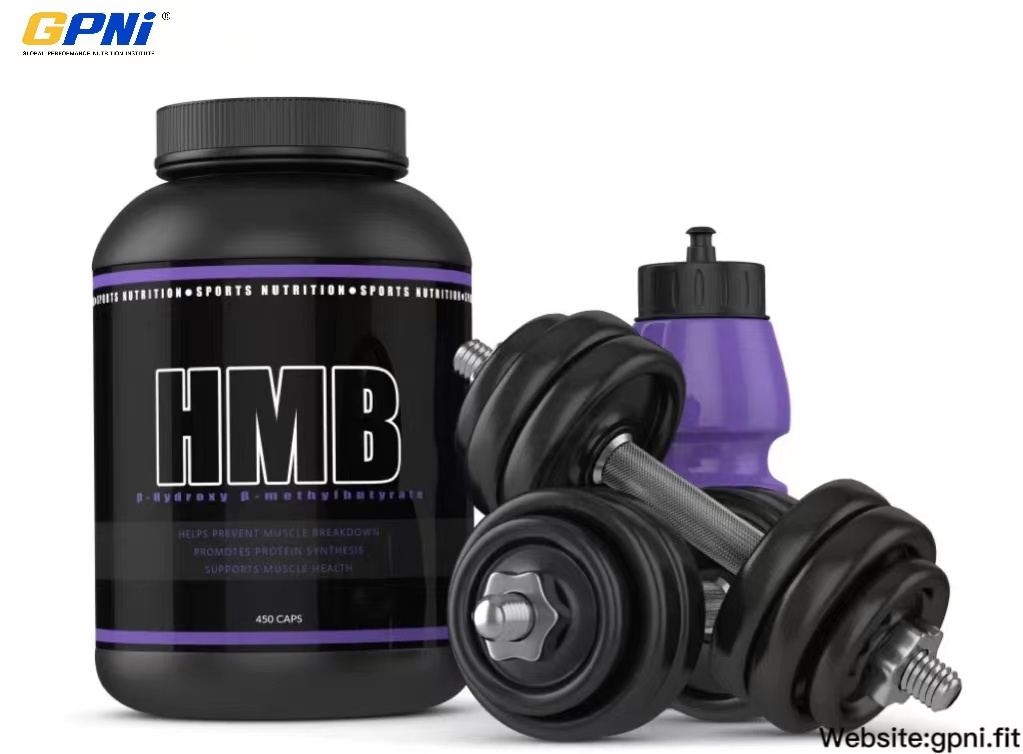
Conclusion
Leucine plays a key role in the promotion of muscle growth. This helps athletes by rebuilding muscle protein after workouts or following an injury. High quality protein choices should meet every individual’s preferences while enhancing sports performance. While total protein consumption is the most important factor to consider, a high leucine content supports maximal MPS.

By: Melissa Shays, ND, LAc, CISSN
Dr. Melissa Shays is a Naturopathic Physician and licensed Acupuncturist. She is a Certified Sports Nutritionist from the International Society of Sports Nutrition. Melissa has attended sports medicine trainings at Medicine of Cycling at USA Cycling and US Ski & Snowboard Sports Medicine. Currently, she is completing the Harvard Medical School Postgraduate Medical Education—Effective Writing for Health Care program.
Sources
- Peter J. Garlick, The Role of Leucine in the Regulation of Protein Metabolism, The Journal of Nutrition, Volume 135, Issue 6, June 2005, Pages 1553S–1556S, https://doi.org/10.1093/jn/135.6.1553S
Holeček M. Side effects of amino acid supplements. Physiol Res. 2022 Mar 25;71(1):29-45. doi: 10.33549/physiolres.934790. Epub 2022 Jan 19. PMID: 35043647; PMCID: PMC8997670.https://www.ncbi.nlm.nih.gov/pmc/articles/PMC8997670/
Jäger, R., Kerksick, C.M., Campbell, B.I. et al. International Society of Sports Nutrition Position Stand: protein and exercise. J Int Soc Sports Nutr 14, 20 (2017).https://doi.org/10.1186/s12970-017-0177-8
Trommelen, J., Betz, M.W. & van Loon, L.J.C. The Muscle Protein Synthetic Response to Meal Ingestion Following Resistance-Type Exercise. Sports Med 49, 185–197 (2019).https://doi.org/10.1007/s40279-019-01053-5
PubChem [Internet]. Bethesda (MD): National Library of Medicine (US), National Center for Biotechnology Information; 2004-. PubChem Compound Summary for CID 6106, Leucine; [cited 2022 Aug. 19]. Available from:https://pubchem.ncbi.nlm.nih.gov/compound/leucine







